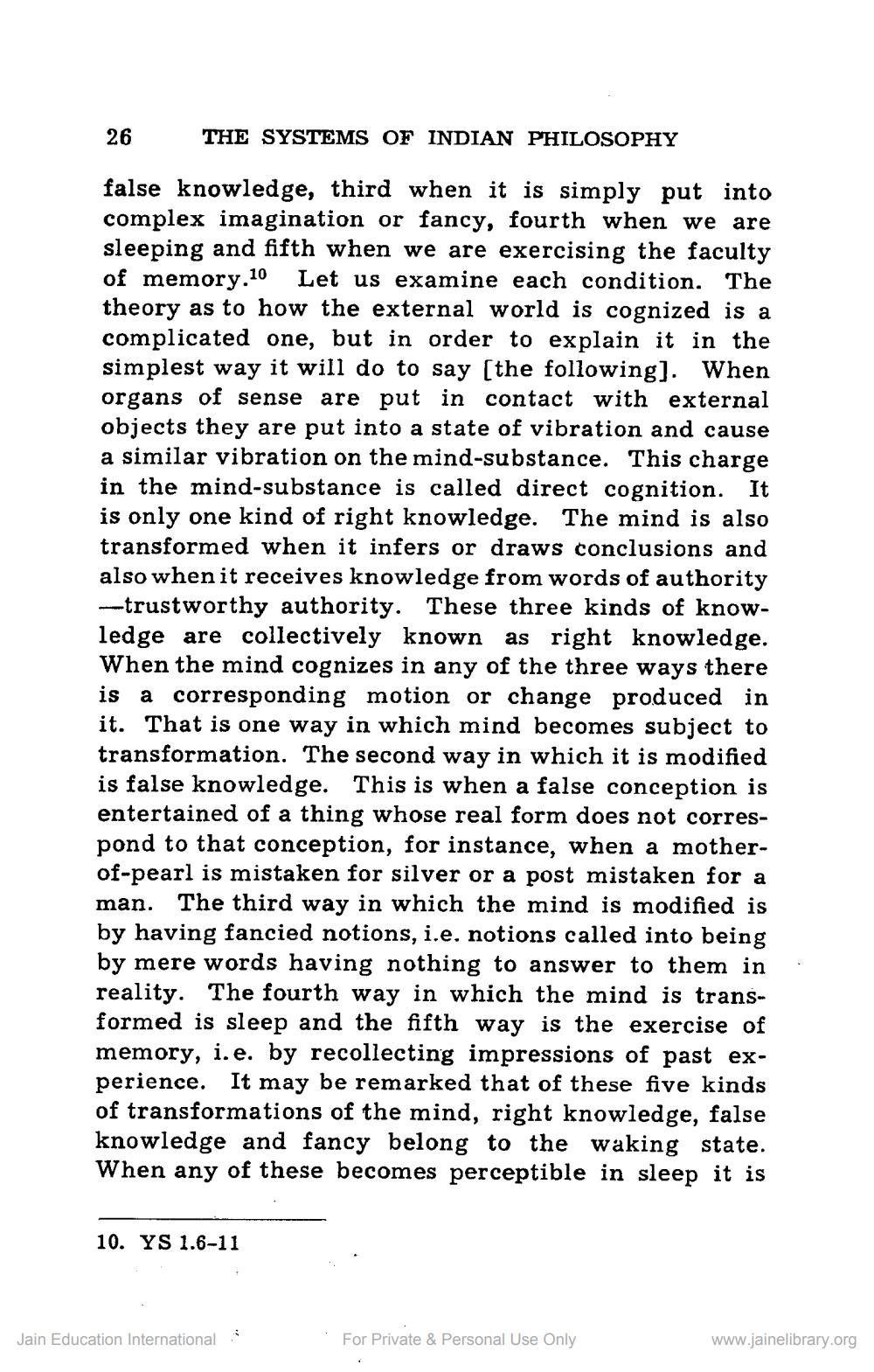________________
26
THE SYSTEMS OF INDIAN PHILOSOPHY
false knowledge, third when it is simply put into complex imagination or fancy, fourth when we are sleeping and fifth when we are exercising the faculty of memory.10 Let us examine each condition. The theory as to how the external world is cognized is a complicated one, but in order to explain it in the simplest way it will do to say (the following]. When organs of sense are put in contact with external objects they are put into a state of vibration and cause a similar vibration on the mind-substance. This charge in the mind-substance is called direct cognition. It is only one kind of right knowledge. The mind is also transformed when it infers or draws conclusions and also when it receives knowledge from words of authority --trustworthy authority. These three kinds of knowledge are collectively known as right knowledge. When the mind cognizes in any of the three ways there is a corresponding motion or change produced in it. That is one way in which mind becomes subject to transformation. The second way in which it is modified is false knowledge. This is when a false conception is entertained of a thing whose real form does not correspond to that conception, for instance, when a mothe of-pearl is mistaken for silver or a post mistaken for a man. The third way in which the mind is modified is by having fancied notions, i.e, notions called into being by mere words having nothing to answer to them in reality. The fourth way in which the mind is transformed is sleep and the fifth way is the exercise of memory, i.e. by recollecting impressions of past experience. It may be remarked that of these five kinds of transformations of the mind, right knowledge, false knowledge and fancy belong to the waking state. When any of these becomes perceptible in sleep it is
10. YS 1.6-11
Jain Education International
For Private & Personal Use Only
www.jainelibrary.org




